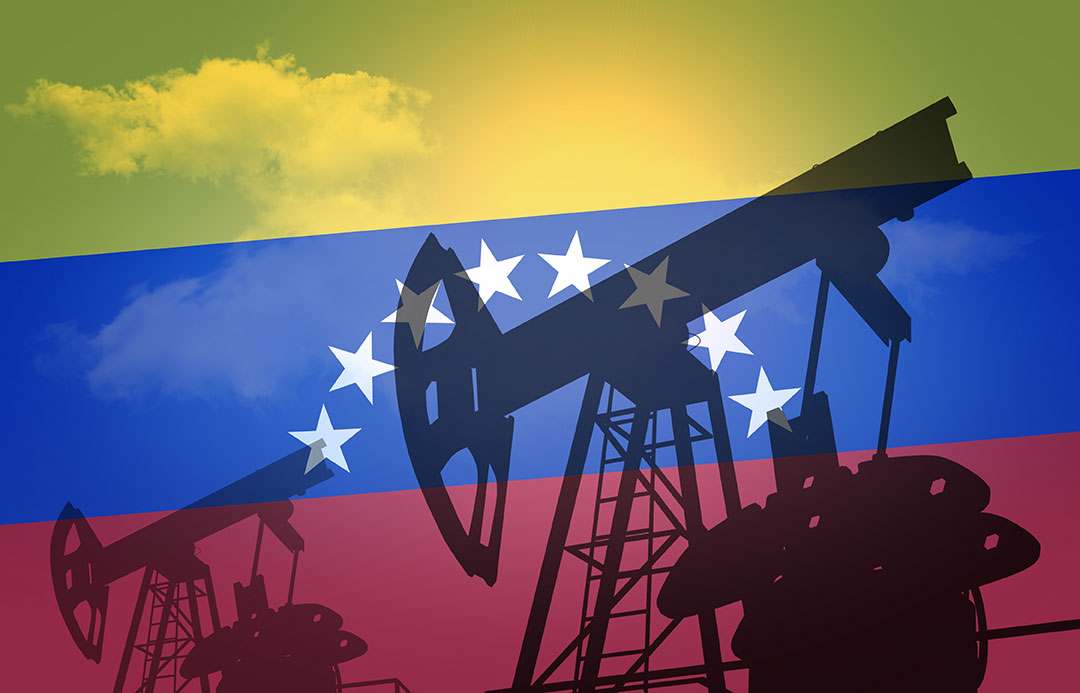Russian Firm Asks Venezuela to Match Chevron Oil-for-Debt Deal
(Reuters) — A Russian oil firm is asking Venezuela's state-run company PDVSA for permission to take control of exports from their joint ventures to revive cash flow from the five companies, which have been hard-hit by U.S. sanctions, two people involved in the talks said.
Roszarubezhneft — a state-owned company that acquired Russian oil major Rosneft's assets in Venezuela in 2020 — wants to market the crude and fuel oil produced by the joint-ventures — similar to a deal PDVSA struck last year with U.S. oil producer Chevron.
Roszarubezhneft's five joint ventures now must rely on PDVSA-designated intermediaries that take a large share of the revenues for their services, the people said. The joint ventures are owed about $3.2 billion from sales handled by PDVSA, one of the people said.
PDVSA separately owes Roszarubezhneft some $1.4 billion from loans previously extended, the person said, adding that PDVSA is disputing that amount.
"Roszarubezhneft is ready to act as an offtaker," one of the people familiar with the matter told Reuters, using industry terminology for being able to sell cargoes itself to customers.
RELATED: Unable to Process Venezuela's Heavy Oil, Cuba Turns to Russia, Mexico
Roszarubezhneft, Russia's oil ministry, PDVSA and Venezuela's oil and foreign affairs ministries did not reply to requests for comment. Rosneft declined to comment.
The proposal may face significant hurdles because it would require a change to the Venezuelan law governing its oil exports and comes at a time when PDVSA is trying to rebuild its own finances after an audit found billions of dollars in unpaid sales for past exports.
Under Venezuela's statutes, the state oil company has control over the sale of oil and fuel exports. However, PDVSA last year agreed to a workaround with Chevron that allowed the U.S. oil major to market crude from its joint ventures in payment for outstanding debt and dividends.
Washington granted Chevron an exemption to U.S. sanctions on sales of Venezuelan oil so it could recover money owed to it but said cash payments to PDVSA were forbidden.
Approval of Roszarubezhneft's request could provide Russia with an additional source of cash at a time when Western sanctions for the war in Ukraine have clobbered its oil revenues and deepened a budget deficit. It also could help PDVSA make progress toward its goal of raising Venezuela's oil output by 40% this year.
The U.S. Treasury and National Security Council spokespeople declined to comment. The State Department did not respond to a request for comment.
Prior Request Ignored
A similar overture last year from Roszarubezhneft to PDVSA was ignored, another person familiar with the talks said.
The current request is unlikely to be granted if export proceeds go only towards debt repayment because PDVSA and the oil ministry are themselves focused on generating cash flows, two sources familiar with PDVSA's operations said.
Any change to the hydrocarbons law would require the blessing of President Nicolas Maduro's United Socialist Party, which dominates Venezuela's National Assembly.
Russia for years has been a close ally of Venezuela. Its oil companies poured billions of dollars into the South American country's oil fields before mounting debts, logistical headaches and U.S. sanctions put a damper on their operations.
Roszarubezhneft acquired the stakes in the joint ventures from Rosneft in 2020 after Washington sanctioned two Rosneft trading arms, alleging they were involved in the sale of Venezuelan crude. Rosneft denied this, calling the sanctions an "outrage."
Oil production at the five joint ventures has dwindled as U.S. sanctions have hampered investment and maintenance work, and deterred many buyers of Venezuelan crude. They pumped combined between 103,000 and 120,000 barrels of crude per day (bbl/d) this year, according to independent calculations by consultants, who asked not to be identified because of the sensitivity of the information.
Cash flow, meanwhile, has declined since 2020 when PDVSA switched — in the face of U.S. sanctions — to contracting intermediaries to market exports, leaving the joint ventures with meager profits due to large price discounts, expensive freight tariffs and mandatory loan reimbursements.
The lack of cash flow from oil sales has hobbled the ventures' activities, leaving them struggling to pay expenses for drilling services, procurement and labor costs, the people said.
Related News
Related News

- Keystone Oil Pipeline Resumes Operations After Temporary Shutdown
- Freeport LNG Plant Runs Near Zero Consumption for Fifth Day
- Biden Administration Buys Oil for Emergency Reserve Above Target Price
- Mexico Seizes Air Liquide's Hydrogen Plant at Pemex Refinery
- Enbridge to Invest $500 Million in Pipeline Assets, Including Expansion of 850-Mile Gray Oak Pipeline





Comments